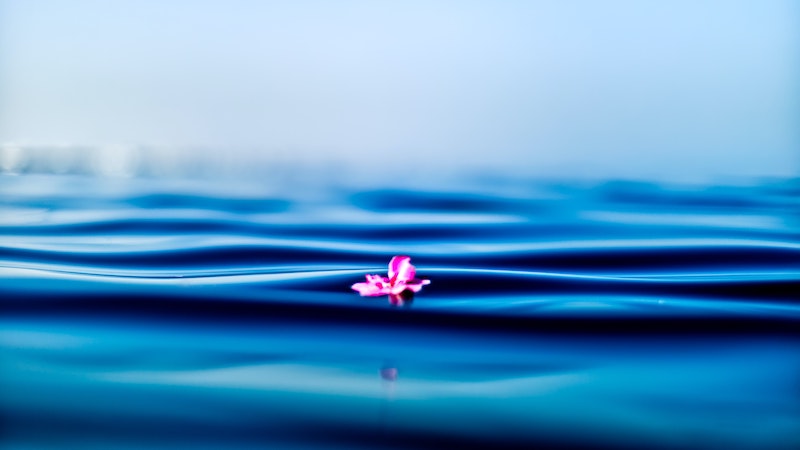Everything Comes Back to Gratitude
Episode #10 of the course Embodied mindfulness: Tools for tuning in to your health, creativity, and purpose by Mina Samuels
Glad you’re back!
On this last day together, we come to one of the most powerful practices of embodied mindfulness: gratitude.
Brother David Steindl-Rast, an Austrian monk and longtime proponent of the dialogue between Christian and Buddhist monks, proposes that gratitude is composed of two distinct ingredients: gratefulness, which is the subconscious feeling of joy that wells up in us, and thanksgiving, which is the experience of allowing our gratefulness to overflow and become conscious. To break into thanksgiving is to sing, dance, and implicate our whole bodies in the feeling and expression of joy. When put together, gratefulness and thanksgiving create gratitude.
But if we cut off our gratefulness instead of letting it overflow, either because something outside ourselves suggests that what we’re grateful for is not worthy—not big enough, not expensive enough, not hip enough, or not going to generate enough status—then we do not allow the overflow into the physical sensations of thanksgiving, and thus, we don’t experience the full power of gratitude.
As Steindl-Rast points out, we can’t be grateful for everything in our lives, but we can be grateful for every moment. That takes practice.
One approach is to meditate on one’s own death, a common practice in Buddhism. One mantra might be, “I could die today.”
This is a difficult practice. I don’t meditate on death often, and when I do, I feel like I’m a fraud. Most days, I still don’t think I’m going to die that day, even as I’m saying the mantra. Sometimes I’m having simultaneous thoughts that are exceedingly mundane.
Then one day, something like this happens. Because my mind was a whirligig when I sat down to meditate on this particular day, I picked a short, guided meditation from the app. I didn’t trust my mind not to sprint in the other direction if I tried just setting the timer. I settled in as instructed, then my guide said in that hallmark, slow-cadence, quiet assurance tone, “You are completely safe.” Tears rolled down my cheeks. Why? Because I suddenly felt how shaky safety was. Because even if I was safe, there were way too many people who weren’t safe. Life is precious (really, poet Mary Oliver was right: “wild and precious”). Gratefulness rushed through my body in a giant wave. I was alive. I had the great privilege of spending 15 minutes on my meditation cushion. I was filled with gratitude.
Notice Moments for Gratitude
Take a few minutes at the end of every day to think about how you felt throughout the day. Pick out the bits where you felt good. While there is no formaldehyde preservative for our memories, to note them specifically is a fine place to start. It ensures that when we store them away in the file drawers of our memory banks, we have distilled their richest flavor. We have access to their essence—not to hang onto, but to refresh our gratitude in the moments it might be running low.
But we cannot stop with gratitude.
Rabbi Abraham Joshua Heschel was a great social activist (he was on the front line at Selma with Martin Luther King Jr.), a mystic, and a 20th-century religious intellectual. He said: “In a free society, some are guilty, but all are responsible.”
Gratitude creates responsibility. When we live in the possibility that we talked about yesterday, it is our great privilege to share that possibility with others. We use our gratitude to fuel our purpose so we can share our abundance with the world.
Perform an Act of Kindness
Start sharing your abundance today. Do something kind for someone else. Even better, perform your act of kindness anonymously. Do it for the overflow of thanksgiving joy that you will feel through your whole body-mind at the other person’s appreciation, even and especially if they don’t know that you are their benefactor.
Speaking of gratitude, I am grateful for the time we’ve spent together these past days. We’ve covered a great deal of ground. At the same time, we’ve only dipped our toes in an ocean of traditions, teachings, science, and practice. There’s so much to absorb and explore. I wish you safe travels on this journey.
Until we meet again!
Mina
Recommended resources
“The Opposite of Good Is Indifference,” On Being podcast interview with Arnold Eisen.
Gratefulness.org, an online sanctuary focused on the power of living gratefully.
To explore these issues further, attend one of The Breaking Out sessions offered by ImagiNation Playshops, where we get on our feet together and play with the full expression of our body-mind connection.
Recommended book
Tea and Cake with Demons: A Buddhist Guide to Feeling Worthy by Adreanna Limbach
Share with friends

